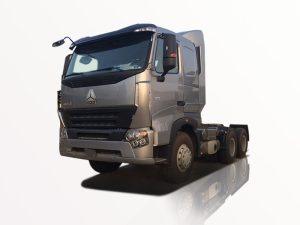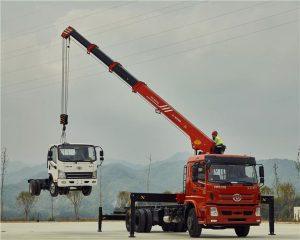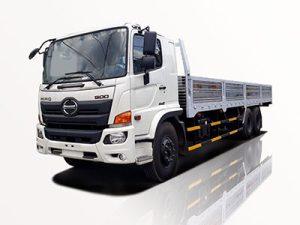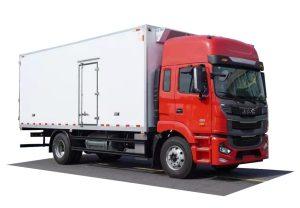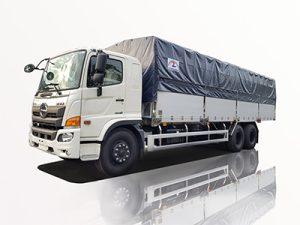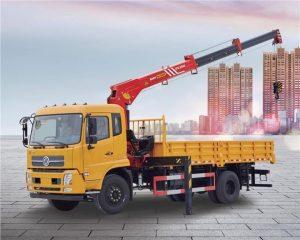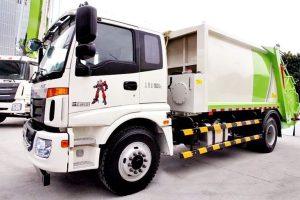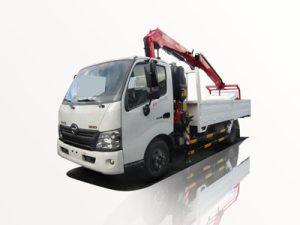Monday to Saturday - 8:00 -17:30
Understanding the Functions of Trash Trucks: A Comprehensive Guide
Trash trucks play an essential role in maintaining the cleanliness and hygiene of our communities. They are designed not just for collecting waste but also for ensuring efficient waste disposal. In this article, we will explore the different functions of trash trucks, their types, and their impact on the environment, while providing practical examples and helpful tips.
The Importance of Trash Trucks
Keeping Communities Clean
Trash trucks are vital in the waste management system. They help keep our neighborhoods clean by collecting refuse from residential and commercial properties. Without them, waste would accumulate, leading to unsanitary conditions.
Environmental Protection
Effective waste collection by trash trucks helps minimize landfill overflow and pollution. By ensuring that waste is disposed of properly, we can protect our environment and preserve natural resources.
Health and Safety
Trash trucks help prevent the spread of disease by removing waste that can attract pests and rodents. Regular collection reduces the risk of health hazards in both urban and rural areas.
Types of Trash Trucks and Their Functions
Residential Trash Trucks
These trucks typically service individual homes and neighborhoods. They usually come equipped with a compactor and a lifting mechanism for ease of operation.
Commercial Trash Trucks
Commercial trash trucks are designed to handle larger loads and can collect garbage from businesses and industrial sites. They have a higher capacity, allowing for fewer trips and more efficiency.
Automated Trash Trucks
Automated trucks use robotic arms to pick up bins. This technology enhances safety and efficiency, allowing operators to work from inside the cab, reducing the risk of accidents.
Recycling Trucks
These trucks are specifically designed to collect recyclable materials. They often feature separate compartments to keep recyclables organized and prevent contamination.
Key Functions of Trash Trucks
Collection of Refuse
The primary function of trash trucks is to collect waste from designated areas. This process typically involves stopping at predetermined routes, parking, and using the truck’s lift to gather trash.
How Collection Works
When the truck approaches a property, the operator uses the vehicle’s hydraulic arm or lift to empty the trash bins into the truck’s compactor. This can happen in a matter of seconds, allowing for quick and efficient collection.
Compacting Waste
Trash trucks are equipped with compactors to increase the volume of waste they can carry. Compacting waste reduces the overall size of the collected refuse, leading to fewer trips to the landfill.
Benefits of Compaction
- Increased efficiency in waste transportation.
- Reduced fuel consumption.
- Decreased environmental impact through fewer emissions from multiple trips.
Transporting Waste
Trash trucks are designed to transport collected refuse to disposal sites. This function is critical for maintaining proper sanitation and preventing waste backlog.
Route Planning
Efficient route planning helps optimize the collection process. Using GPS technology, waste management companies can determine the fastest routes, reducing fuel consumption and streamlining operations.
Disposal of Waste
Once at the disposal site, trash trucks dump their contents for proper processing. This can involve landfilling, incineration, or transferring materials to recycling facilities.
Importance of Proper Disposal
Correct disposal techniques are essential for environmental safety. Each type of waste requires different disposal methods to minimize ecological harm.
Innovations in Trash Truck Technology
Smart Trash Trucks
With the emergence of smart technology, trash trucks are becoming increasingly efficient. Features like RFID tracking and onboard cameras can enhance waste collection operations significantly.
Benefits of Smart Technology
- Real-time data collection for improved service.
- Enhanced monitoring of waste levels in bins.
- Improved safety for drivers and pedestrians.
Electric Trash Trucks
As concerns about carbon emissions grow, many waste management companies are adopting electric trash trucks. They offer a quieter, cleaner alternative for urban waste collection.
Advantages of Electric Trucks
- Lower operating costs.
- Reduction of greenhouse gas emissions.
- Less noise pollution in residential areas.
Practical Tips for Ensuring Efficient Trash Collection
Proper Waste Segregation
Encouraging residents and businesses to segregate waste into recyclables, organics, and general trash can optimize the collection process and improve recycling rates.
Community Awareness Programs
Educating the community about proper waste disposal methods promotes active participation and improves overall waste management efforts.
Regular Maintenance of Trash Trucks
To ensure that trash trucks operate efficiently, routine maintenance checks are necessary. This includes inspections, oil changes, and component checks to keep them running smoothly.
The Economic Impact of Trash Trucks
Job Creation
The waste management industry provides numerous jobs, from truck drivers to administrative staff and maintenance workers. Trash trucks are central to this industry’s operational needs.
Cost Efficiency
Investing in efficient trash trucks and technology can significantly reduce waste collection costs and improve city budgets by lowering operational expenses.
Impact on Community Services
Efficient waste management promotes a cleaner environment, leading to increased property values and enhanced community services.
Environmental Considerations
Reducing Landfill Waste
Effective waste management systems utilizing trash trucks can significantly decrease the amount of waste sent to landfills by promoting recycling and composting.
Promoting Sustainable Practices
Trash trucks not only help in the collection of waste but also play a role in encouraging sustainable practices within communities by promoting recycling programs and educating the public.
Compliance with Environmental Regulations
Trash trucks must comply with rigorous environmental regulations, ensuring proper disposal methods that minimize negative ecological impacts.
Future Trends in Trash Truck Design and Functionality
Increased Automation
With the advancement of robotics, the trend towards increased automation in trash trucks will continue, making waste collection safer and more efficient.
Integration with Smart City Technology
As cities become smarter, the integration of trash trucks with smart city infrastructure will enhance efficiency, allowing for real-time waste management updates and improved resident experiences.
FAQ Section
1. What types of waste do trash trucks collect?
Trash trucks collect various types of waste, including residential refuse, commercial waste, recyclable materials, and organic waste depending on the type of truck and service offered.
2. How often are trash trucks scheduled to collect waste?
Collection frequency can vary based on location and type of waste. Most residential areas have weekly pickups, while commercial locations may have more frequent service.
3. What happens to the waste after it is collected by the trash truck?
After collection, waste is taken to disposal sites, which may include landfills, recycling centers, or composting facilities, depending on the type of waste and local regulations.
4. How do automated trash trucks work?
Automated trash trucks use robotic arms to lift and empty trash bins without requiring the driver to exit the cab, making the process safer and more efficient.
5. Are electric trash trucks more expensive to operate?
While initial investment costs can be higher, electric trash trucks typically have lower operating costs due to reduced fuel and maintenance expenses.
6. How can communities improve their waste management practices?
Communities can improve waste management by promoting recycling, organizing community clean-up events, encouraging proper waste segregation, and supporting local waste management initiatives.


